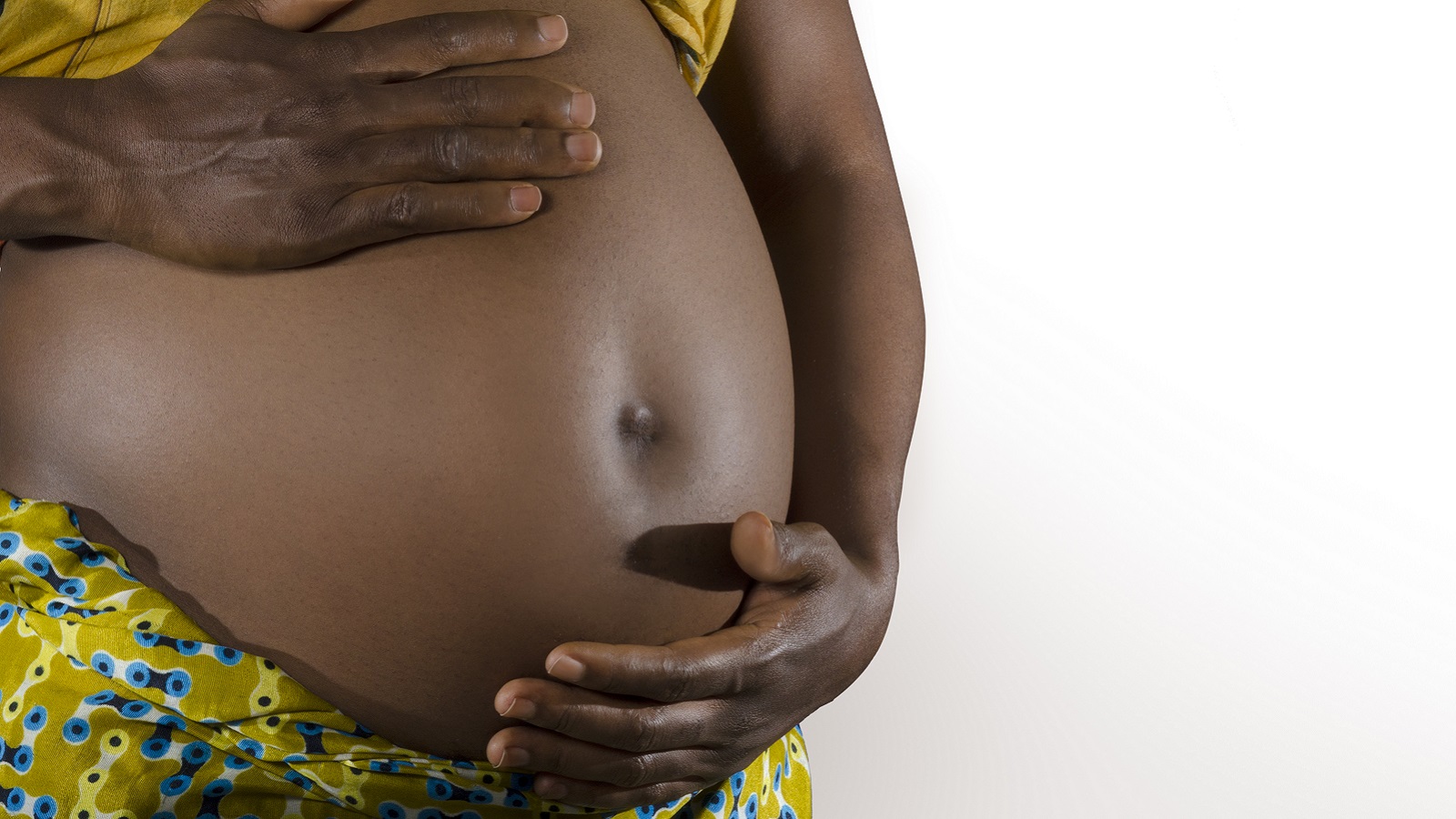The term “doula” is the latest buzzword appearing everywhere, from social media and podcasts to federal and statewide legislation and health care policy. This popularity may be attributable to the recent increase of peer-reviewed research that demonstrates what has long been communal knowledge—that this historical, community care model is an evidence-based practice for greatly improving pregnancy and birth outcomes for Black-identifying mothers and pregnant people.
Despite this increased popularity, the role of doulas in shaping these outcomes remains largely misunderstood and devalued. This poses significant barriers for doulas as they seek to provide services to clients, especially in medicalized settings and particularly during the COVID-19 pandemic, as well as ensure that they are paid an adequate and livable wage. As World Doula Week approaches, consider learning more and supporting this vital practice.
Defining the impact of doulas and birthwork
The definition and use of the term “doula” varies, though the term typically refers to a non-clinical professional that provides socio-emotional support and information throughout the perinatal period (during pregnancy, throughout labor and delivery, and/or during the postpartum period). They are not midwives, though they often work alongside midwives to provide holistic pregnancy care. This simplified definition does not capture how the culturally-reflective, community-based doulas and birthworkers (or birthkeepers) that embody the #DeliverBirthJustice campaign would describe themselves. Birthwork is much more than providing support, comfort measures, and childbirth education to a pregnant person—it is a form of justice-seeking activism.
Black mothers and pregnant people face alarming disparities in pregnancy and birth outcomes, including overuse of medicalized interventions which contribute to perinatal mental health and chronic morbidities. These disparities are highly attributable to racism and include examples like the following:
- Invalidation of and dismissed concerns throughout the perinatal period;
- Increased stress due to patronizing and adverse interactions with medical providers and hospital staff; and
- Both perceived and actual low-quality care, resulting in pregnant people being treated as incompetent or non-compliant when questioning recommendations or making autonomous decisions for their bodies.
These are just a few examples of the racism that pregnant Black people face, and they are layered on top of everyday experiences of intersectional marginalization and systemic stressors. Birthworkers play a major role in addressing and mitigating these factors.
Birthwork—particularly birthwork for Black, Indigenous, People of Color (BIPOC), and those that face additional layers of marginalization, such as queer, trans, or incarcerated pregnant people—is rooted in creating a strong socio-emotional bond with a client that is defined by trust, care, compassion, and love, in order to actualize the birth experience they desire and deserve. It also requires deep advocacy to protect this autonomy and mitigate, as much as possible, the harmful effects of racism and other systems of oppression surrounding the perinatal experience.
This advocacy takes shape by encouraging clients to recall their birth plan if asked to compromise, encouraging clients to ask questions about suggested medical interventions, and reminding clients of their perinatal rights and autonomy to make decisions regarding their bodies and their infants. Unfortunately, this advocacy can be perceived as adversarial by some practitioners and staff, often leading to tension, as well as doulas themselves experiencing racist treatment in medicalized settings.
Birthworkers, like those providing services for Roots of Labor Birth Collective, those that offer culturally-reflective training, and those that provide care for this transition beyond birth, such as lactation consultants and bodyworkers, provide trauma-informed, person-centered care for clients centered on justice and holistic wellness. This type of care, which has long existed in BIPOC communities as simply caring for one another in the ways that systems do not, is often antithetical to the medical-industrial complex, which actively contributes to adverse health outcomes for BIPOC pregnant people and families. For BIPOC pregnant people, doulas are not a luxury or an elective companion during pregnancy, they are a life-saving necessity.
Person-centered care and womanist bioethics: frameworks for doula care
Naming and recognizing the impact of systemic, interpersonal, and personal values on health, health care, and health-related policy is vital to sustainably transforming systems that have historically harmed varying groups of people. Morals and values shape how white supremacy and capitalism fuel marginalization of groups via racism and systems of oppression, and also allow for the prioritization and adaptation of systems and policies to suit the needs for those deemed valuable.
Values grounded in racism and greed led to policy that institutionalized and criminalized the work of historical granny midwives in the South, while paving the way for white counterparts and obstetrician-gynecologists. Values shape the varied statewide legislation toward abortion and termination support, criminalizing those that do not align with particular socio-political leanings rather than protecting bodily autonomy. Values have shaped the response to the COVID-19 pandemic in the United States, including whose lives have been treated as expendable. Values also deemed which providers were ‘essential’ in hospitals to providing perinatal care, often excluding doulas and reinforcing harmful conditions for pregnant people. Values shape how much health systems are willing to adjust to the needs of the community, instead of demanding the opposite.
The way that doula care is understood and addressed by institutions and policymakers requires a paradigmatic shift in understanding what it means to provide health care. Womanist bioethics, a theological and bioethical framework primarily developed by Dr. Wylin D. Wilson, centers the lived experiences of Black women and other marginalized groups of people as valid references for shaping policies and practices related to health and health care.
The person-centered care provided by doulas models this framework by valuing Black women and marginalized people’s lived experiences and their generational knowledge, while prompting action that validates Black women and the access to resources they deem as necessary for wellness. A womanist bioethics framework sees the divinity in doula care as essential for ensuring that in a world where Black people have faced historical mistreatment and marginalization, and where they continue to face degradation and the impacts of racism throughout their lives, that at the very least, they deserve a gentle, loving, empowering, and beautiful entrance into this world.
Ongoing support for doula care
At its core, doula care involves socio-emotional connection, focused care during a major transitional period, and deep advocacy to protect the sacredness of that transitional period, despite the systems around it. This sacred work can sustainably continue by:
- Investing in the knowledge and services of community-based doulas and birthworkers to make care more accessible and equitable;
- Increasing funding for Black birthworkers to support clients in actualizing their visions of ideal and empowering births, including homebirth midwifery and options beyond hospitals; and
- Validating experiences, making space, and accepting that advocacy is not adversarial when the client’s autonomy, respect, joy, desires, and sense of personhood are ultimately prioritized.
The current health care system’s approach to care must shift towards person-centered care and a womanist bioethics framework in order to make this work sustainable.
Everyone deserves equitable access to high-quality health care and to live in environments that positively impact socio-ecological determinants of health. Doulas fill gaps in care by providing person-centered services grounded in justice, autonomy, non-maleficence, and beneficence. Most importantly, doulas demonstrate how love and genuine investment in a person’s well-being have lasting impacts on people, their families, their communities, and society as a whole. Starting with doula care, we can facilitate better care for ourselves and shape empowering and respectful care for generations to come.
About the author

Nicole Taylor Morris (she/her), MTS, is a womanist bioethicist, scholar-activist, doula, and movement chaplain, but most importantly, she is the daughter and granddaughter of incredible Black women. She is currently coordinating a doula program for the Alameda County Public Health Department and provides capacity-building support for The Common Good Co-op and The Tamir Rice Foundation. She is a graduate of Harvard Divinity School (‘20) and Tufts University (‘18) where her scholarly work and praxis focused on the intersections of Black women and community health, community-centered healing, and the role of spirituality in wellness
**Feature photo obtained with standard license on Shutterstock.
Interested in other articles like this? Subscribe to our newsletter.
Interested in contributing to Perspectives in Primary Care? Review our submission guidelines.
- Share
-
Permalink


